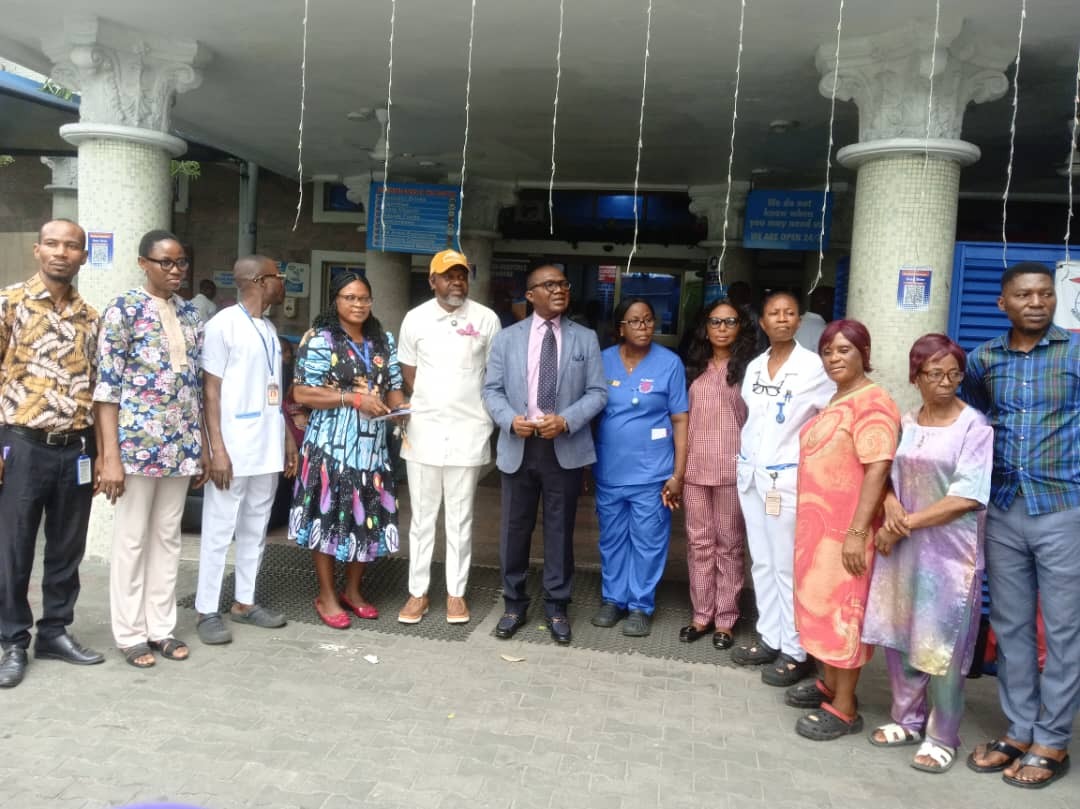A Certified Fertility Health Coach, global fertility advocate, Ola Taiwo is the host of Fertility Conversations dedicated to infertility awareness and alternative paths to parenthood. She completed her Fertility Health Coaching certification at the Brilliant Birth Academy, USA and currently serves as a judge for the European Fertility Society’s Annual Awards Ceremony. A member of European Society of Human Reproduction and Embryology (ESHRE), International Federation of Fertility Societies (IFFS), and Fertility Support Professionals Association (FSPA), through education, advocacy, and storytelling, Taiwo continues to challenge stigma, build community, and empower individuals and couples with hope, empathy, and expert support.In this interview, she proffers practical solutions to support women with fertility issues in their workplaces.
How does fertility issues relate to the workplace?
Across Nigeria and much of Africa, infertility remains a deeply personal and often invisible struggle. Behind professional smiles are men and women silently juggling early-morning scans, hormonal side effects, emotional exhaustion, and the weight of stigma; all while trying to perform at their jobs as though nothing is happening. According to the World Health Organisation, one in six people globally experience infertility at some point in their lives. This means almost every workplace has someone quietly battling this challenge; perhaps using sick days for fertility appointments, or hiding the bruises from hormone injections under long sleeves during meetings.
What heavy burden women with fertility issues bear?
Infertility is not just a medical condition; it’s an emotional and social reality that affects every part of life, including work. Employees undergoing fertility treatment often face demanding medical schedules multiple appointments a week for bloodwork, scans, or procedures that cannot be postponed. Many are forced to use annual leave or unpaid days off because there are no formal policies or understanding of what they’re going through. Others stay silent, afraid to disclose their situation for fear of being seen as “less committed.” For women, the pressure can be overwhelming; managing intense treatment cycles while meeting workplace expectations. For men, there’s the quiet emotional toll of being a supportive partner while navigating their own feelings of loss or helplessness. When workplaces lack awareness or empathy, this silence deepens the pain.
what is the importance of fertility awareness in the workplace?
A fertility-friendly workplace begins with understanding. Managers and HR teams need to realize that employees undergoing fertility treatment aren’t asking for special treatment; they simply need compassion and flexibility. A few hours off for a medical scan or the option to work remotely during treatment cycles can make a huge difference in someone’s wellbeing. In many parts of the world, some organizations now offer Fertility Leave, paid or flexible time off for people going through IVF, IUI, or egg freezing. Others have introduced training so managers know how to respond sensitively when employees open up about fertility challenges. Nigeria and other African countries can begin taking small but meaningful steps in this direction. Even without formal legislation, workplace culture can evolve through education and empathy. I must reiterate that every day sensitivity counts.Beyond medical leave, inclusivity also means being mindful of workplace experiences that can unintentionally exclude or hurt people trying to conceive.
Take “Children’s Day at Work” or “Family Day” events. While these are often joyful, they can be painful for employees who have experienced infertility or loss. Such events can be redesigned more thoughtfully; calling them “Loved Ones Day” or “Community Day” allows everyone to join, whether they bring a child, friend, or parent. Inclusivity is not about removing joy; it’s about ensuring everyone feels seen. The same goes for casual comments. Phrases like “When will you have yours?” or “You’re next!” may seem harmless but can reopen deep wounds. Fertility awareness training can help staff recognise these micro aggressions and replace them with empathy.
How can workplaces become building fertility-friendly?
Creating a fertility-friendly workplace doesn’t have to be complicated. It starts with small, intentional changes such as; Encourage open dialogue. Let employees know fertility struggles and pregnancy loss are recognized wellbeing issues. It is also crucial to include fertility in HR policies. Offer flexible working hours or compassionate leave for treatments or recovery. A workplace Fertility Awareness Day or talk (in partnership with advocates like Fertility Conversations) can help break the silence. Workplaces can also offer mental health support. Access to counseling or employee assistance programmes can make a real difference. Be inclusive in celebrations. Plan family events with sensitivity and use language that acknowledges different life paths.
These shifts not only support employees emotionally but also strengthen organisations through improved morale, loyalty, and retention. People perform better when they feel valued and understood. There is also the basic imperative to show empathy to women with fertility issues beyond policies in the workplace. Ultimately, fertility-friendly workplaces are about creating environments where people don’t have to choose between their careers and their dreams of building a family. Supporting employees through infertility, loss, or alternative paths to parenthood isn’t just good HR practice; it’s humanity in action. When we make space for conversations about fertility at work, we reduce stigma, foster compassion, and remind people that they’re not alone. Because behind every employee is a story we may not see; and when workplaces make room for those stories, they become more than places of work they become places of care, growth, and hope.






